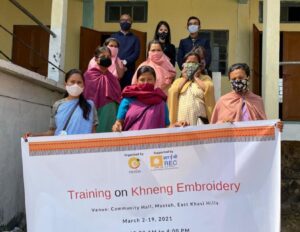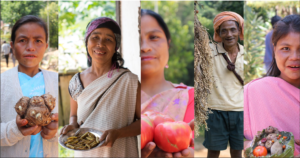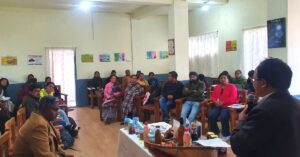Over the years, school gardening has become an important campaign among our partner communities. They serve as a great platform for children to learn and understand the basic methods of farming, knowing where food comes from, the richness of biodiversity, and integrating humanities and science subjects to a practical based knowledge system. Most importantly, school gardening in community schools is facilitated by the custodian farmers of that specific community to strengthen the traditional knowledge system
The school students of Dewlieh community, East Khasi Hills, have started planting in their school garden for this year. Around 50 school children are engaged in planting different kinds of vegetables in the school garden. To date, they have cultivated black mustard leaves, cucumber, rice beans and broad beans (red variety). The time for sowing is usually from mid-February till April and the period of harvesting is from May to December.
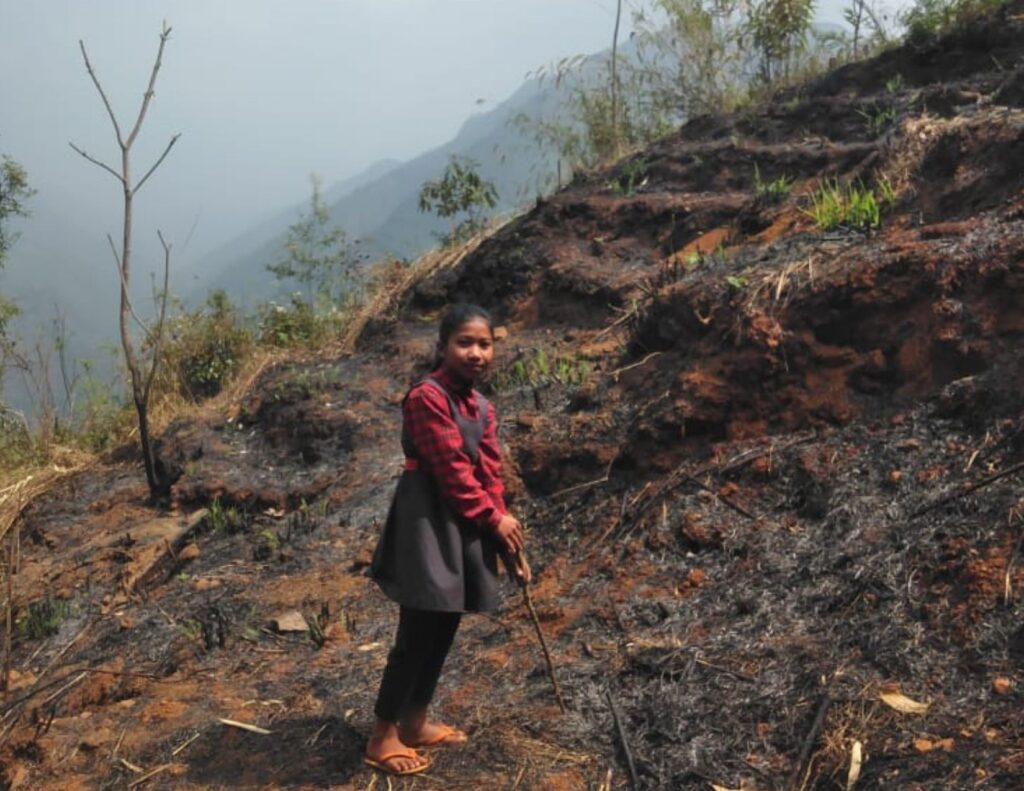
The young students, from a very young age, also start learning the names of crops that they grow, their importance as well nutritional values. The garden is free from any chemicals, cattle and insect-eating plants as there is less quantity of crops grown. They have also started domesticating wild edibles in their gardens. The vegetables harvested from this garden are also used for supplementing the Mid-Day-Meal that is served in the school.
Kismita Diengdoh, 13-year-old student of SSA UP School, Dewlieh, expressed, “School garden has been a benefitting initiative whereby we are able to identify, grow and harvest our own food”.
This year, the school gardening programme in Dewlieh incorporated a new food production system in their curriculum- jhum cultivation (shifting cultivation) – which is an age traditional food production system of the Dewlieh community. A specific plot of land in the school garden is now being used as a jhum field. The children are now gaining experience in this important food system of the Khasis. They learn about jhum not only at the school level but the more they learn is also from self-exposure. The children in the community have always been accompanying their parents to the shifting fields (near or far forest areas). Sometimes, they also join their parents to clear and burn the forest, and grow and harvest the crops. Through jhum, the students learn the values of caring and sharing of food, land, and knowledge.
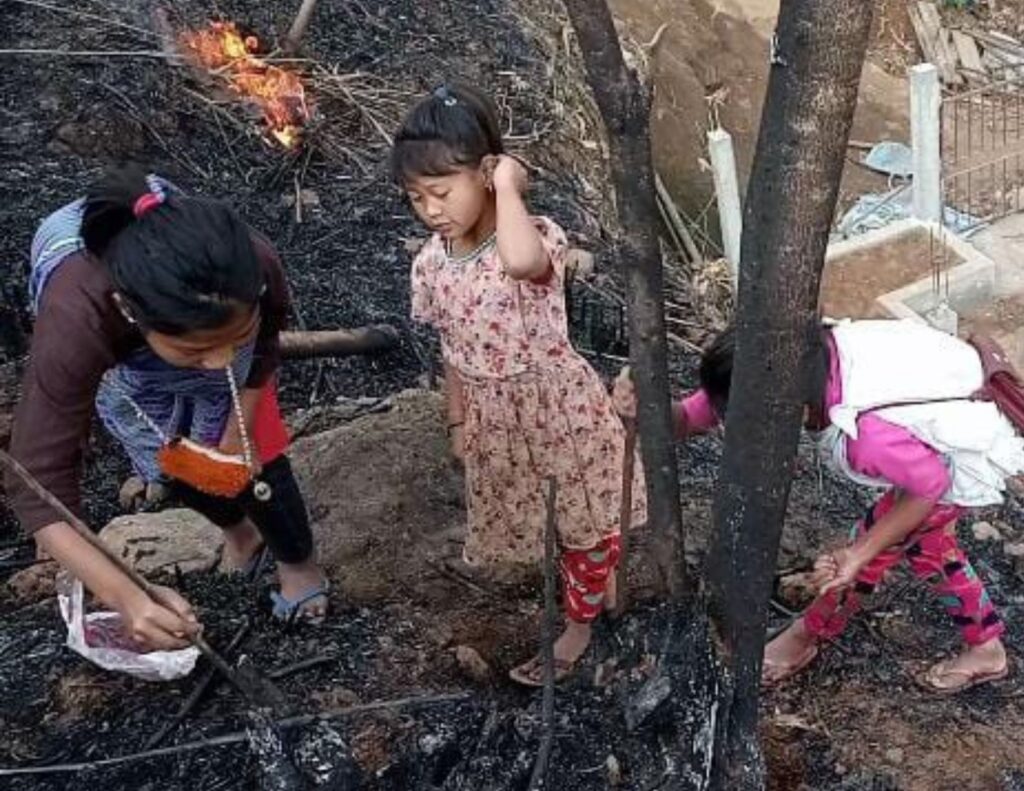
“As a school teacher, I encourage other teachers, elders, parents to be the caretaker of the traditional farming system and to encourage the youth, especially the students by providing them a chance to learn about agriculture and to sustain the traditional method”, shared Bah Shaiphar Dohling, School Headmaster, Dewlieh.
Since the crops grown are very less, the quantity served in the MDM program is also less. The teachers of the school believe that there is a need to expand the area of the school garden.
This initiative serves as a chance for children to learn about the food they eat, it also inculcates respect for the occupation of farming which is quickly losing popularity among the youth. As Bah Shaiphar expressed, “Anything new is a challenge but understanding and collective responsibility is a way to overcome the challenge”.

